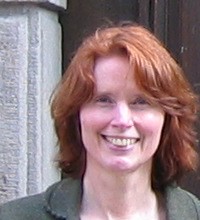In class today we read through the assignment sheet for the literacy narrative, previewed your writing assignment for Thursday, and you set up your blogs.
In looking through the literacy narrative assignment, I emphasized that you are supposed to use writing in a particular way for the creation of this assignment. That is - you are supposed to do a great deal of "freewriting" or associating to the prompts - jotting down your experiences with literacy (everything you can remember) => and then use that writing as evidence. After you have lots of writing (data) - we will do some group work & one-on-one work to figure out the themes in your literacy experiences. From there you will begin to map out an essay that explores who you are as a writer - and how and why you got to be that writer (and whether you would like to be a different kind of writer).
We also talked about discourse - and discourse communities. We will talk more about this later, but for now - discourses are sets of (often unconscious) assumptions, values and beliefs about how to BE (including how to write and speak). Different groups usually have identifiable discourses.
For the Aaron and Joshi reading - we used a divide an conquor strategy. We will all read and be prepared to talk about the introduction, the history of writing & the general description of the three theoretical approaches. After that -
the back row = macroevolutionary theory, pp 274 - 283
middle students on my right + back row on left = microevolutionary perspective 283-94
front students on my right = the language as interactive perspective, pp 295-301
At the end of class you set up your blog, and sent me a link to your blog. I will check the links - and if they don't work I will get back to you by email.
Good class today. Your early experiences with literacy raised a lot of important factors that shape us as literacy learners: relationships to family & peers; the role of school as a model + cultural expectation; how play and good feelings influenced us, and more. You might add to this list (jot memories down as they come to you) randomly or systematically (hmmm - that will mean something too).
For Thursday:
Read: Written Language is as Natural as Spoken Language: A Biolinguistic Perspective by Aaron & Joshi
Blog 1: Post your understanding of the main points from your sections of the assigned reading. This is NOT supposed to be an essay / finished writing => these are reading notes and will not be evaluated based on grammar, spelling or style. I will be looking for evidence that you grappled with the ideas in this reading. Also write down questions - and words you may not be sure of. There are big ideas in this reading, and there are some big words - but it is big theory - and really cool.
Remember that the internet is there to help you find definitions for words you don't know. To save you some trouble, I've started a list of words that might make this a hard read.
genotype "is the genetic constitution of a cell, an organism, or an individual." (how it's made)
phenotype "is any observable characteristic or trait of an organism" (how it looks)
syntax = word order
phonology = the study of the sounds associated with language
morphology = the study of forms
orthography = study of the way writing is presented for interpretation
ontogeny = the sequence of development of a particular organism. This essay refers to the ontogeny of languguage - meaning the development of language by a particular speaker
phylogeny = the sequence of changes undergone in speciation => when one organism evolves into a different organism. In this essay when they refer to the phylogeny of language they are implying similar relationships and evolutionary relationships as one language evolves into another.
deep structure + universal grammar (layman's definition) = what we automatically know about language because we are human
Monday, January 25, 2010
Subscribe to:
Post Comments (Atom)

No comments:
Post a Comment